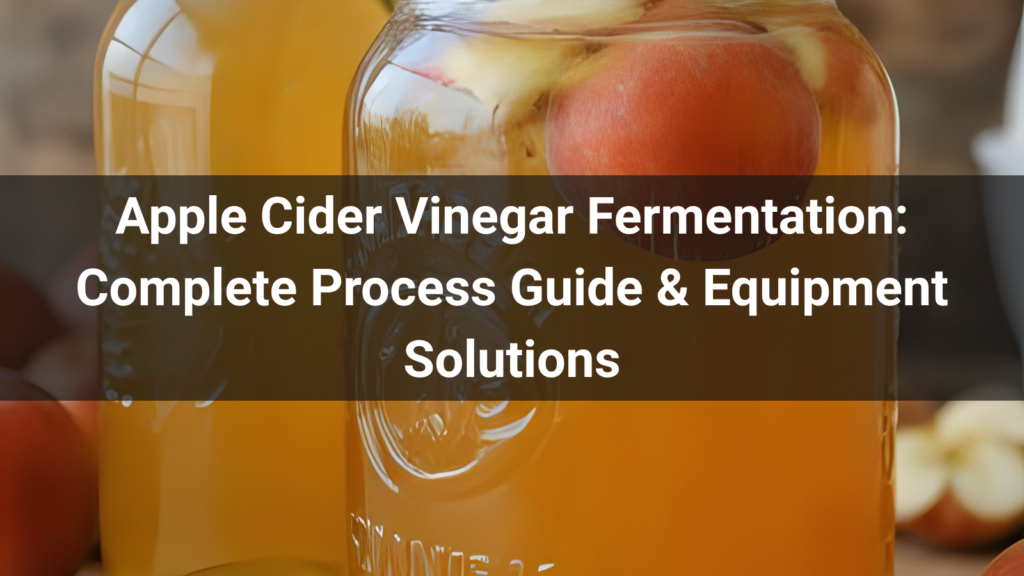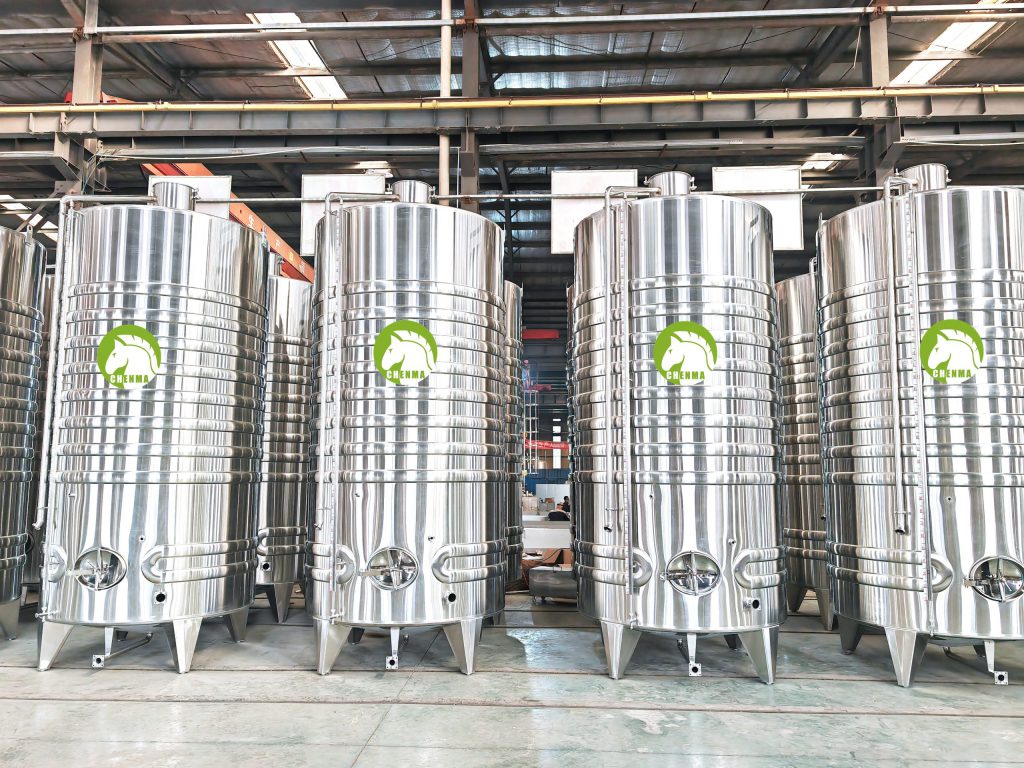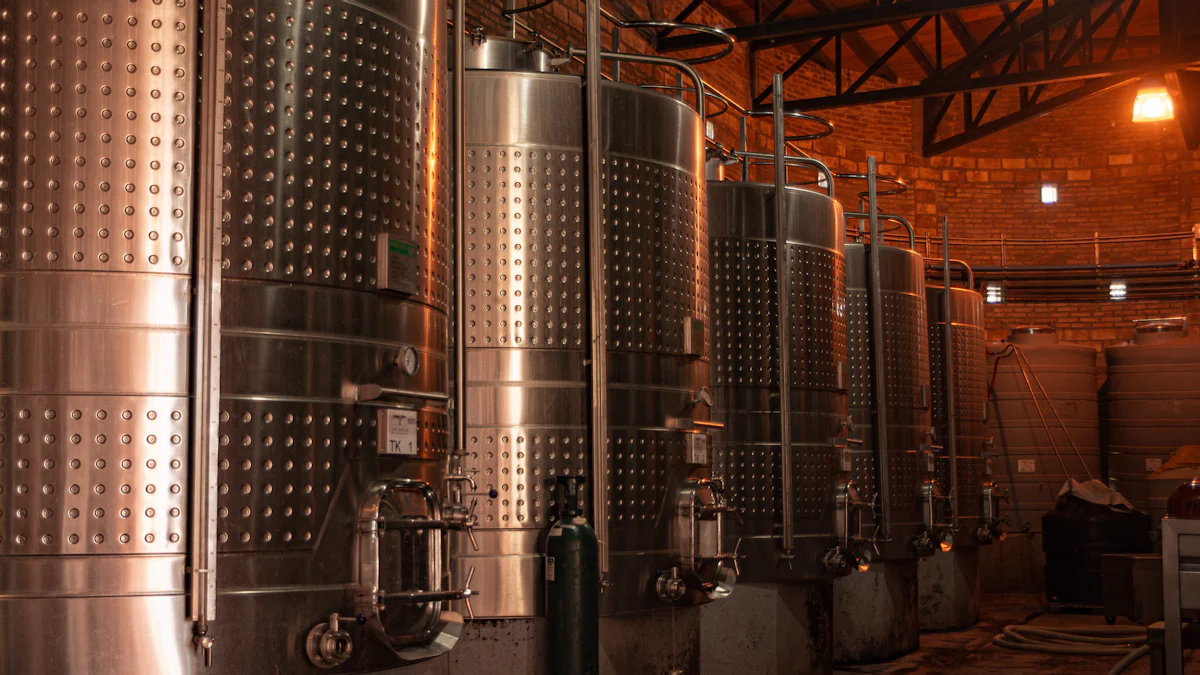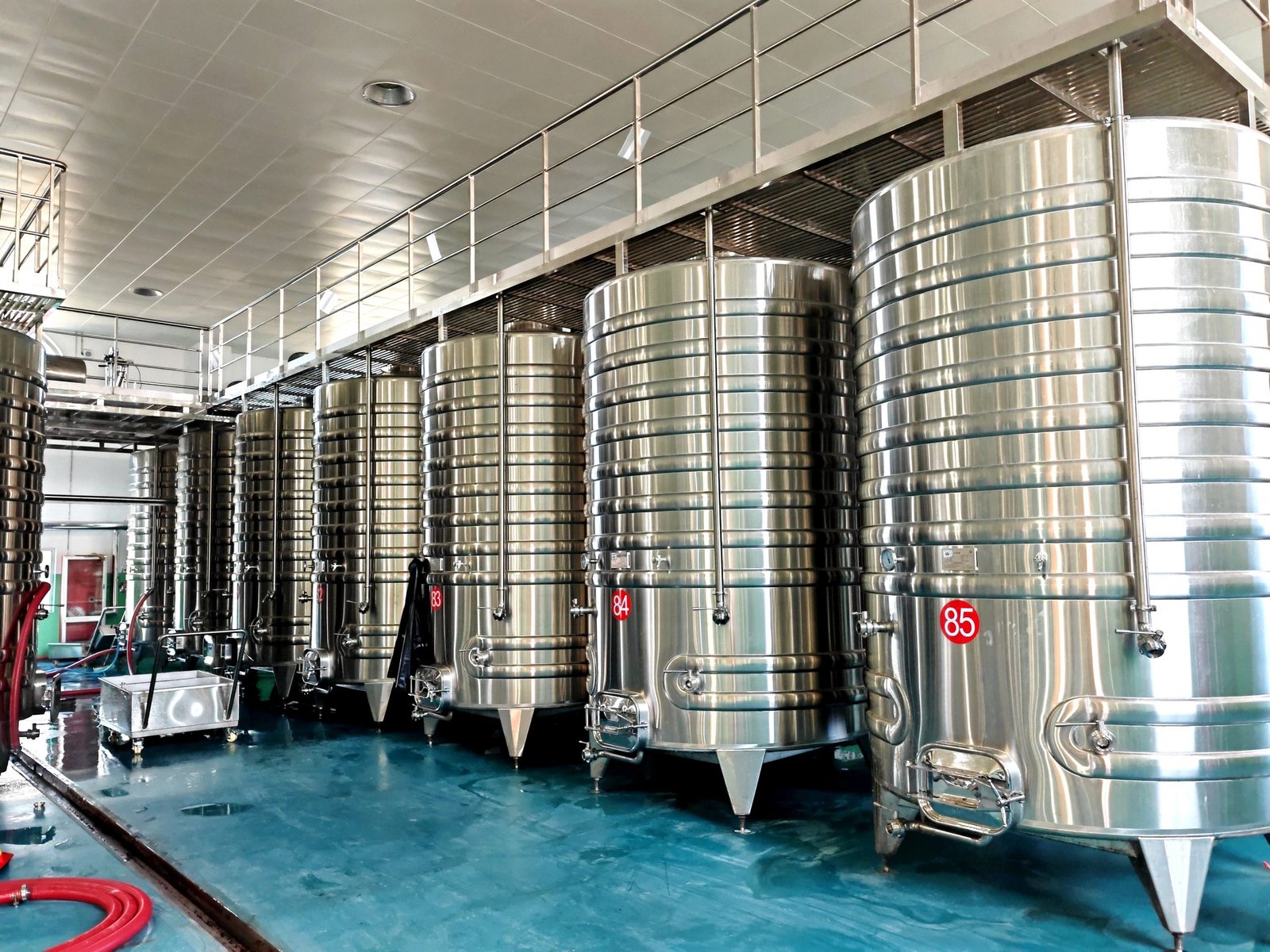
Table of Contents
- Is Apple Cider Vinegar Fermented?
- Is Apple Cider Vinegar a Fermented Food?
- How to Ferment Apple Cider
- Can You Drink Fermented Apple Cider?
- Recommended Fermentation Equipment
- FAQ: Practical Questions and Answers
- Contact Us
Is Apple Cider Vinegar Fermented?
Yes, apple cider vinegar (ACV) is indeed a fermented product. It is typically made through a two-stage fermentation process. First, natural sugars in apple juice are converted into alcohol through alcoholic fermentation using yeast. This creates hard cider. Then, a second fermentation process occurs where bacteria (usually Acetobacter) convert the alcohol into acetic acid, giving apple cider vinegar its distinctive sour taste and health benefits.
Fermentation is the key to developing the characteristic aroma and acidity of ACV. At Chenma, we specialize in designing stainless steel cider fermentation tanks that ensure this critical process remains controlled, sanitary, and efficient for commercial producers.
Is Apple Cider Vinegar a Fermented Food?
Yes, ACV is classified as a fermented food because it’s produced by beneficial microorganisms transforming apple juice into vinegar through fermentation. It shares similarities with other fermented foods like kimchi, kombucha, and sauerkraut, offering probiotic potential and bioactive compounds that support digestive health.
For large-scale food producers aiming to produce fermented products safely and consistently, Chenma offers high quality cider making equipment and commercial cider making equipment built to meet international safety standards.
How to Ferment Apple Cider

Fermenting apple cider at home or commercially can be done in several steps:
- Choose Fresh Juice: Use fresh-pressed apple juice without preservatives.
- Primary Fermentation: Add yeast to the juice in a sanitized vessel, like a stainless
steel cider tank or food-grade fermenting bucket. Keep it at 18-22°C (65-72°F) for 1–3 weeks until
fermentation slows. - Secondary Fermentation: Transfer the cider to another tank or carboy, minimizing oxygen
exposure. Age for several weeks or months to develop flavor complexity. - Optional Vinegar Fermentation: To turn cider into vinegar, add Acetobacter and leave exposed to
air at controlled temperature, allowing alcohol to convert into acetic acid.
For precise fermentation, professional cider makers often rely on vessels equipped with temperature control, sample
valves, and cleaning systems, like those highlighted in our Complete
Guide to Cider Fermentation Vessels.
Can You Drink Fermented Apple Cider?
Yes, fermented apple cider is drinkable and is commonly known as “hard cider.” It typically contains alcohol produced
during fermentation. However, raw or unfinished cider should be handled carefully, ensuring sanitation and proper
storage to prevent spoilage or contamination.
Commercial producers rely on Chenma’s cider fermentation vessels to maintain strict hygiene and consistent quality from
batch to batch, reducing risk and improving shelf life.
Recommended Fermentation Equipment

Choosing the right equipment depends on production size, budget, and desired quality. At Chenma, we recommend:
- Stainless steel conical
fermentation tanks: Ideal for efficient yeast collection and cleaning. - Understanding
material differences: Stainless steel offers better hygiene and longevity than plastic options. - Commercial
fermenters: Suitable for growing cideries needing higher volume and precise control.
For home brewers, check our articles like Cider Tanks Made Simple for
Homebrewing Success.
FAQ: Practical Questions and Answers
- Can you make vinegar at home? Yes, but use clean, food-grade fermentation vessels and control
temperature and oxygen exposure carefully. - Does apple cider vinegar contain probiotics? Raw, unfiltered ACV may contain beneficial
bacteria known as the “mother.” - How long does cider fermentation take? Primary fermentation usually takes 1–3 weeks; full
maturation can take months. - Why choose stainless steel tanks? They’re easy to clean, durable, and maintain consistent
temperatures, as discussed in our article Top Benefits of
Stainless Steel Cider Tanks.
Contact Us
If you’re planning to produce apple cider, hard cider, or vinegar, let us help you design the ideal system:
- 🌐 https://sdchenma.com
- 📧 Email: admin@sdchenma.com
- 📞 WhatsApp: +86 180 6342 1809
With decades of experience, certified production, and custom solutions, Chenma is your trusted partner for
professional fermentation equipment.



